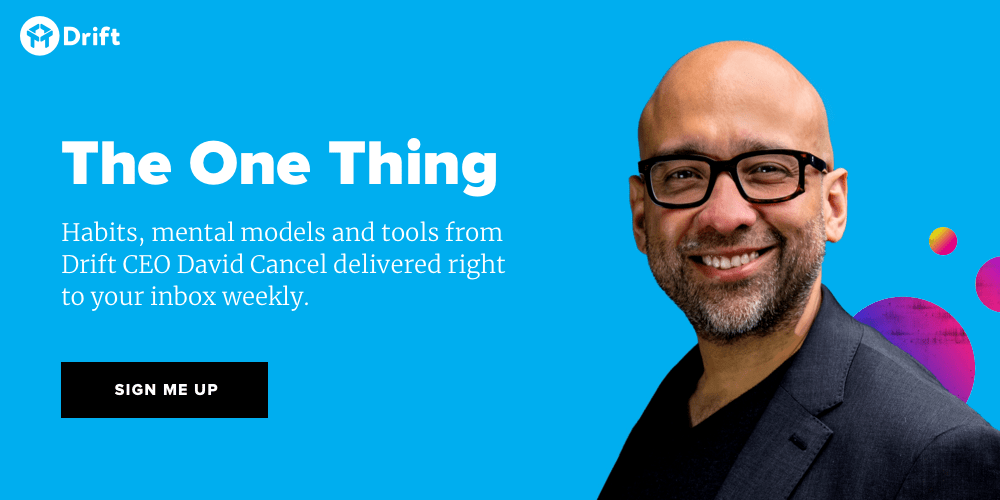
Editor’s Note: This article was first published by Inc. here.
I was talking to someone the other day, and he asked me what I thought about the idea of “hiring for cultural fit.”
The problem with hiring for cultural fit is that people tend to only hire people who look and sound like them. But the culture of a place changes depending on the sum of people in the business at any time – it’s not static. My company is not the same one it was in 2015, or even 2018.
Instead, you need a team of differing perspectives, but shared values.
So how do you ensure this? And what should you focus on instead?
Knowing your key values.
When we started Drift, we identified eight key “Leadership Principles” that represent the characteristics we look for and admire. And the key to hiring the right people is recognizing the behaviors you celebrate, and those you just tolerate.
I believe the “tolerate” part is most important – especially early on in a company. Because even if someone is an A+ player, if they don’t have the qualities you celebrate, then it’s not worth hiring them. They won’t work in the culture, and they won’t add value.
We want to be the new face of corporate America. We want to be made up of people who look, sound, and think differently. Because that is how great things are created – and how we will build an enduring company.
But we also want people who embody the things we celebrate – like bias for action, an obsession with our customers and the desire to be a curious learning machine. So whenever we hire someone new, we ask the interviewers to consider our Leadership Principles and think about whether this person exhibits those characteristics.
Finding complementing personalities.
Team fit is hugely important at a company. Start-ups are hard enough as it is – and they become impossible if you don’t work well with the people around you. And building a team is a bit like a puzzle – which is why I’ve always relied on understanding personality types.
That’s why, before anyone interviews at Drift, they take the Predictive Index Behavioral Assessment. To be clear, there is no right or wrong personality type – but they do matter when compared to the rest of the team.
Utilizing something like Predictive Index helps us figure out what people are and are not naturally inclined towards – and gives us an idea of how someone would work on a particular team.
In order to be as transparent as possible, we share the results on our internal Wiki, and people are able to map out how their team works with each other based on their profiles, what the team’s strengths are – and the areas the team is lacking in.
Making sure you’re not blinded by skills and experience.
This might sound strange – because of course intelligence and experience are important. But it can be tempting to hire someone specifically to fill a gap in your company’s (or team’s) skillset. And roles and companies change – particularly at a start-up – and what might be needed at a certain point, might become less central as priorities shift and the team and company grow.
So when thinking about intelligence and experience – think about things like scrappiness, a hunger to learn and level of life experience – all things that enable a candidate to easily adapt and evolve. The key to getting to the bottom of this is to get people talking, rather than just answering. Find what what is is that really makes them tick.
There is no doubt that hiring is hard. But if you just hire for cultural fit – and forget to focus on your values, what your team needs and people’s desire to grow and learn – you end up with a homogenous organization. And that’s not interesting for anyone.






